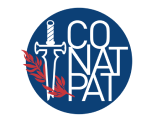The Team
PROJECT MEMBERS
Michael Antolović (1975) is Associate Professor of Modern European History at the University of Novi Sad, Serbia. His research interests include the history of modern historiography, historical theory, and intellectual history. He has published widely on the history of Serbian, Ex-Yugoslav and German historiography. His most recent books are Istoriografija i politika: Intelektualna biografija Friedricha Meineckea (Historiography and Politics: An Intellectual Biography of Friedrich Meinecke, 2017) as well as Čedomir Popov: Intelektualna biografija (Čedomir Popov: An Intellectual Biography, 2021).
Bibliography (a selection):
- A Bibliography of Georg G. Iggers, Storia della Storiografia 73/1 (2018) 45–67 (with Filippo Chiocchetti, Yibo Zhang, Hanzhang Tu).
- History as Vallis Aurea: Đorđe Stanković and the modernization of Serbian historiography, Tokovi istorije 3 (2018) 109–145 (with B. Šimunović-Bešlin)
- The History of Historiography as a Form of Disciplinary Self-Reflection. In Memoriam: Georg G. Iggers (1926–2017), Moving the Social: Joural of Social History and the History of Social Movements 66 (2021) 125–142.
- Modern Serbian Historiography between Nation-Building and Critical Scholarship: The Case of Ilarion Ruvarac (1832–1905), Historiography: Critical Readings, III: Scientific Models. From the West to the World, ed. Q. Edward Wang, London 2021, 111–129.
- Writing History Under the „Dictatorship of the Proletariat“: Yugoslav historiography 1945–1991“, Revista de História das Ideias 39 (2021) 49–73.
- Networking in Santa Barbara, Writing History: Dimitrije Ðorđević and the Comparative History of Balkan Nations, Dynamics of Emigration: Émigré Scholars and the Production of Historical Knowledge in the 20th Century, edd. S. Berger, Ph. Müller, New York – Oxford 2022, 188–204.
- Only those who have shown in deed that they are in favor of socialist self-governance can engage in writing and teaching of history – The rise and fall of „Vojvodinian historiography“ (1968–1993)”, Istorija 20. veka 40/2 (2022) 277–300.




